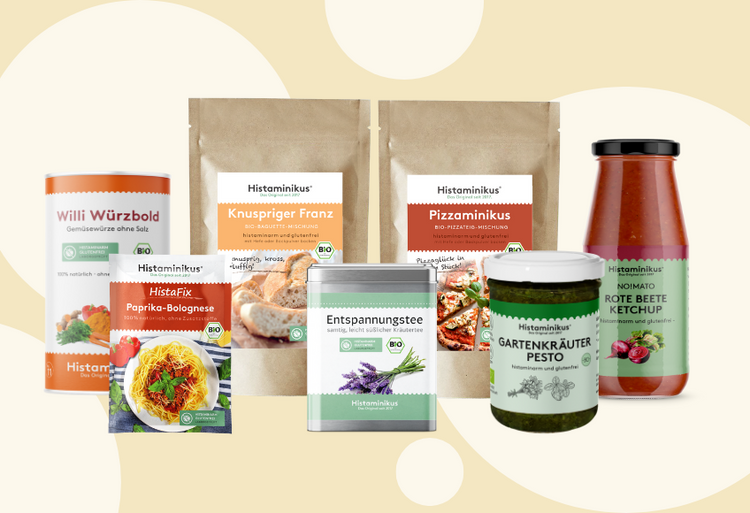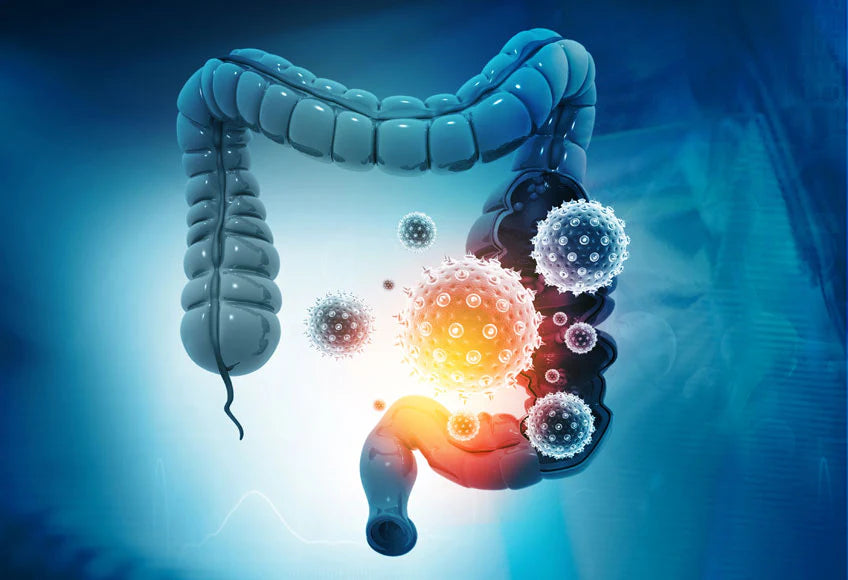
The leaky intestine - the leaky good syndrome
A guest contribution by Yvonne Isabella Löhner, nutrition expert
Our intestine comes into contact every day with the material from no time - in the form of food, bacterial fragments, pollutants. Between our body and the outside world, it is constantly decided which substances the body absorbs, which are not processed and excreted. In this process, a properly functioning intestinal mucosa of the gastrointestinal tract is required and of enormous importance for our health.
Talk about your brand
Many people plague around with gastrointestinal problems every day. Only a few know that a disturbed intestinal activity as a result of a permeable intestinal barrier can have a major impact on general health. The so-called Leaky Gut syndrome (English "leaky good" = permeable intestine) affects more people than one may believe. Histamine intolerance is often associated with increased intestinal permeability or leaky good syndrome.
The symptoms of Leaky Gut syndrome can be very diffuse and diverse, such as:
- Joint pain and muscle pain
- Chronic muscle pain
- Concentration disorders
- Bloating, diarrhea, constipation
- Headache / migraine
- Mood fluctuations up to depression
- Eczeme /acne
- weakened immune system
- Chronic fatigue
- Food intolerance (food intolerances)
- Irritable bowel complaints
and much more.
Many of the symptoms mentioned are not necessarily associated with a sick intestine. Therefore, those affected usually do not even come up with the idea of doing something for their digestive system.
However, the longer the leaky Gut syndrome exists, serious complaints can develop over the years.
In some diseases, a connection with a disturbed intestinal barrier is suspected. These include, for example: chronic inflammatory bowel diseases, celiac disease, allergies, obesity, type 1 diabetes, autism, autoimmune diseases.
The following factors can be triggered for the permeable intestinal mucosa:
- Medicines e.g. antibiotics, painkillers such as aspirin or ibuprofen, chemotherapy agents,
- disease -causing bacteria,
- Parasites, mushrooms and viruses,
- Improper nutrition,
- Easy material such as alcohol, smoking and too much coffee,
- psychological stress,
- Small intestinal misalignment,
- Vitamin A deficiency
Why is a malfunction of the intestinal barrier harmful?
As soon as the natural barrier function in the intestine gets out of balance,
can lead to the transfer of different undesirable substances through the intestinal wall into the bloodstream.
This includes food components that have not been fully digested, toxins that the body actually excretes. The passage of such fabrics can lead to an increased activation of the intestinal mune system. The immune system begins to direct the absorbed substances.
A defense reaction is triggered, which can also lead to inflammation of the intestinal mucosa.
The consequence of such a reaction can be perceived in the form of diarrhea, nausea, abdominal pain or even increased pain sensation.
In addition, it is increasingly assumed that the excessive immune reactions in leaky good syndrome can favor both food intolerances and food allergies.
It also comes because the immune system can now also be directed against undigested food components and then mark them as harmful and recognized. If, for example, for example, as part of a well -tolerated meal, the same food is recorded, the immune system can recognize it as harmful, although there is actually no danger from it.
How can a Leaky Gut syndrome be determined?
An important examination to make the diagnosis of leaky-good is the so-called Lactulose Mannitol test. Also Blood tests The so-called protein zonulin that the permeability in the intestine regulates can provide information on the presence of a leaky good syndrome. In Chair tests Substances such as alpha-1 antitrypsin, secretoric immunoglobulin A (Siga) and some inflammatory markers can be found. An experienced therapist has many ways to get this syndrome and help the patient.
What can I do to fix the disorder myself?
The most important measure for the treatment of the leaky-good is a change in nutrition and stress reduction. Our diet, which is rich in refined sugar, unhealthy, fats, durability makers and foods, plays a role in the development of many bowel diseases.
In addition to the inflammatory bowel diseases, we e.g. Crohn's disease and ulcerative colitis, which in turn can trigger a Leaky Gut syndrome, can also lead to a direct damage to the intestine. This can often express itself in the intestine through permanent subtle inflammatory activity.
A balanced diet that is rich in healthy fatty acids, fiber, vitamins and minerals helps to calm the intestine and keep the inflammation in check. Especially in the case of proven food allergies and intolerances, the corresponding poorly compatible food components should be avoided in order to reduce and avoid additional irritation of the gastrointestinal tract.
The good news is that there are measures to build up the intestinal barrier that are presented here together:
- Remove (omit) - Food and lifestyle factors that eliminate the intestine
- Replace (add) - Instead, foods that have an anti -inflammatory and repairing effect on the intestine and the body
- Reinocculate (new settlement) - The good intestinal bacterial strains should be supported or populated by taking probiotic bacteria. This is extremely important because bacteria in our intestine are an important part of the intestinal barrier.
- Repair (repair) - the intestinal mucosa with micronutrients
Which foods should be avoided at Leaky Gut Syndrome?
- Cereal products, especially gluten -containing products such as wheat, spelled, rye, barley or green core
- Milk and cheese products, although we should also think of sheep and goat, because people can develop casein intolerance increasingly in the disturbed intestine
- Fast food, which contains many unhealthy fats and carbohydrates and is often gluten
- Food -containing foods such as whole grain, tomatoes, peas, beans, sugar pods, chickpeas, soybeans, lentils, eggplants, tomatoes, paprika, chili pepper, gojiberes
- Industrially processed foods, because they contain many flavor enhancers, emulsifiers, aroma substances, additives and gluten
- Refined so -called empty carbohydrates such as white flour, light rice, bright pasta, soft drinks, sweets, ketchup
- Furthermore, toxic loads, tap water, pesticides, and antibiotics should be checked
Brief overview of foods that are recommended for Leaky Gut syndrome:
- Chicken broth and beef broth - broth contains collages, numerous amino acids and glycin, which can help heal the attacked intestinal cells. Self -boiled brewing are best suited, as Grandma has already done. Coconut products - the fatty acids of the coconut are particularly easy to digest.
- Shads, linseed and hemp seeds are an excellent source of fiber, which can promote the growth of good intestinal bacteria. However, if you suffer well from very pronounced leaky, the beginning would be more of a steamed vegetables because this is a little gentler.
- Healthy fats-it is very helpful to eat foods with a high omega-3 proportion, as this can have an anti-inflammatory effect. Olive oil, avocados, ghee and coconut oil, salmon - whereby the plastic and heavy metal load should be thought of. In summary, this means: Reduce gluten -containing foods, possibly dairy products, sugar, unpleasant grain and genetically modified food.
Find stressors in everyday life
Finding the stressors in everyday life is also an important point because negative stress can lead to distribution of many harmful substances in the body. You should keep in mind that: everything can be stress! Whether it is the work or partner, the lack of contact with a family member, lack of (self) love, little sleep. Medications can also trigger interactions. Here I would like to introduce you to a few options that can be helpful in the intestinal repair, whereby the Leaky Gut-Syndrome, among others, should be intended for allergies and food intolerance, parasites, mushrooms. Everything - even the healthiest food - can trigger or force inflammatory processes and must be individually adapted.
Darms healthy - I healthy
Nutrition expert Yvonne Isabella Löhner makes it clear in her book "Darms Healthy - I Healthy", from which signs can be seen that the intestine suffers. What damages the intestinal flora, what symptoms indicate a attacked intestine and which diseases can result? These and many other questions are skilfully explained in the detailed guide. With her book, Ms. Löhner invites you to a journey together to better understand and value the body.
The affiliate link forwards you to Amazon. You can buy the book there.
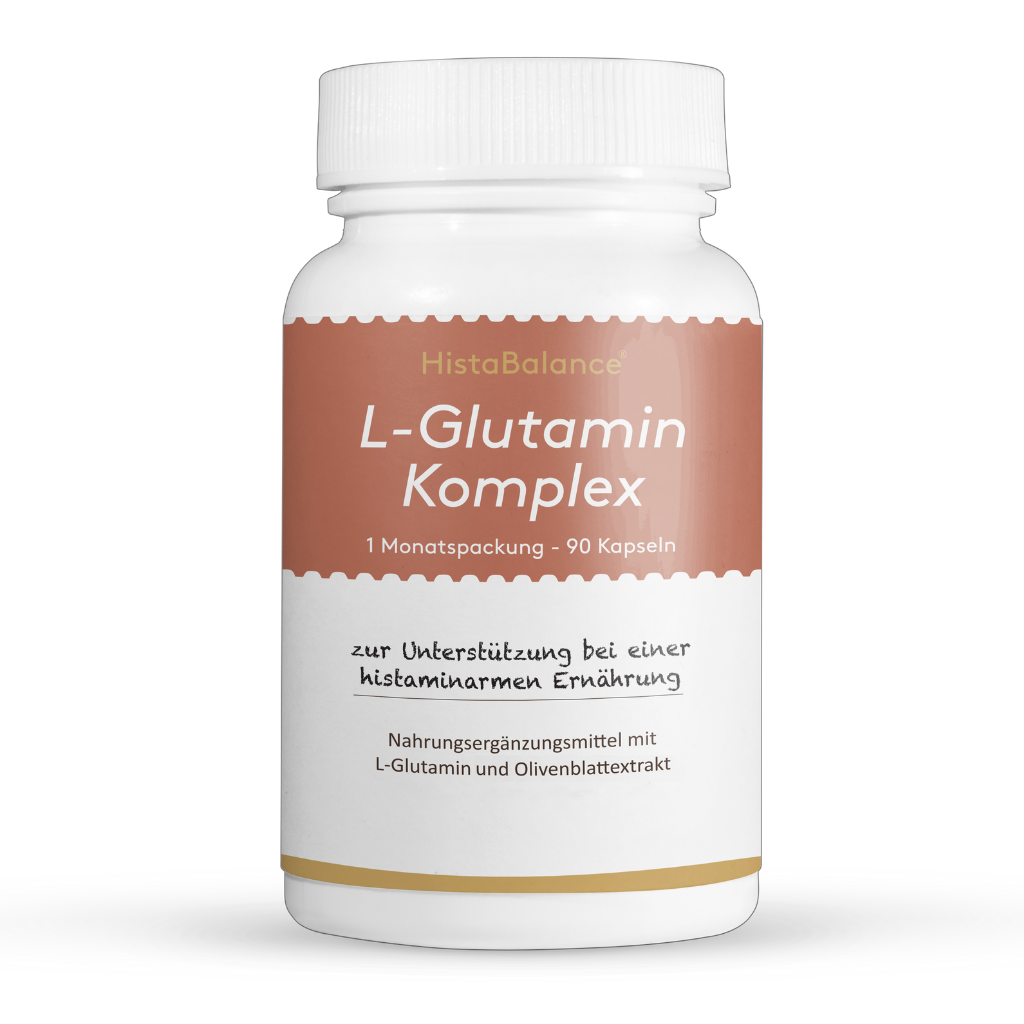
Histamine -low products
Histaminikus
L-glutamine complex
4.72 / 5.0
(18) 18 total reviews
According to various studies, L-glutamine plays a central role in the preservation of the intestinal mucosa. A healthy intestinal mucosa is of enormous importance in the case of histamine intolerance, since the histamine -degrading enzyme dao is formed in the intestinal mucosa.
Share
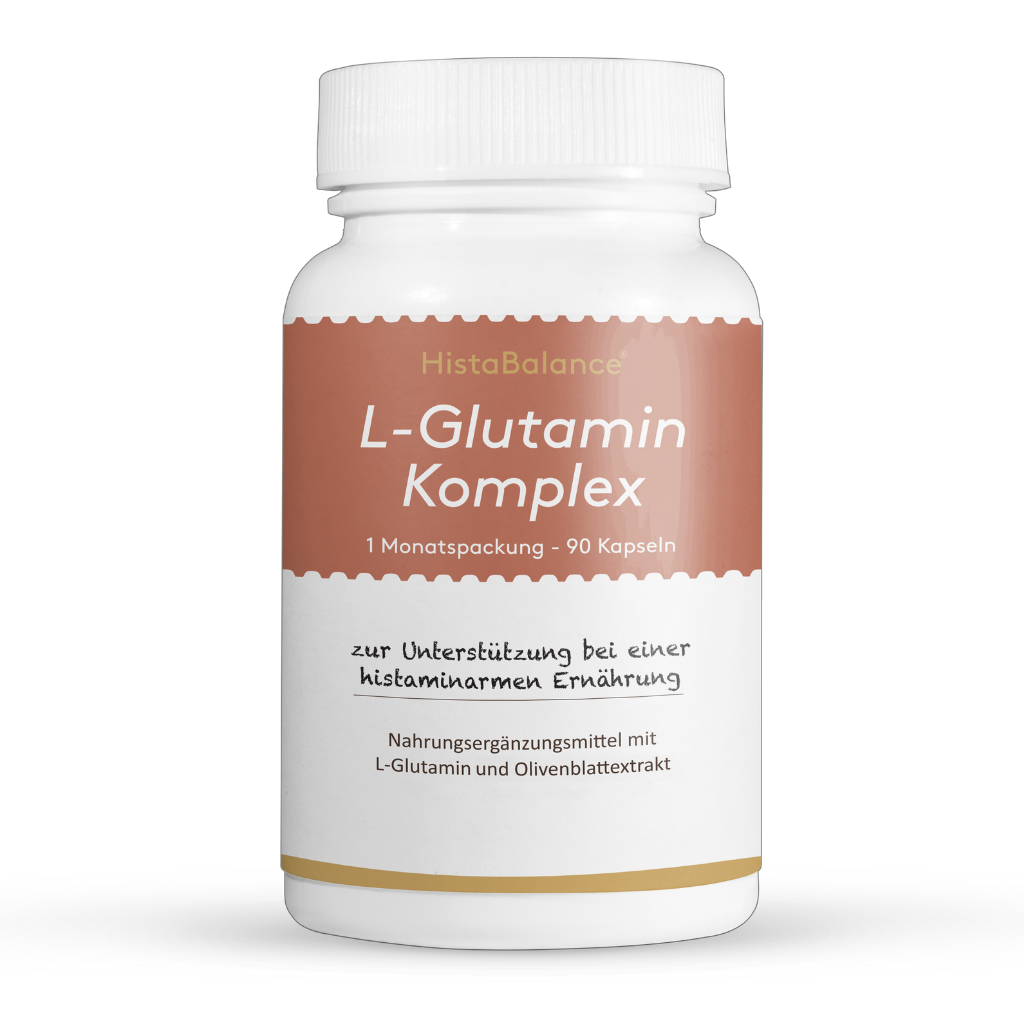
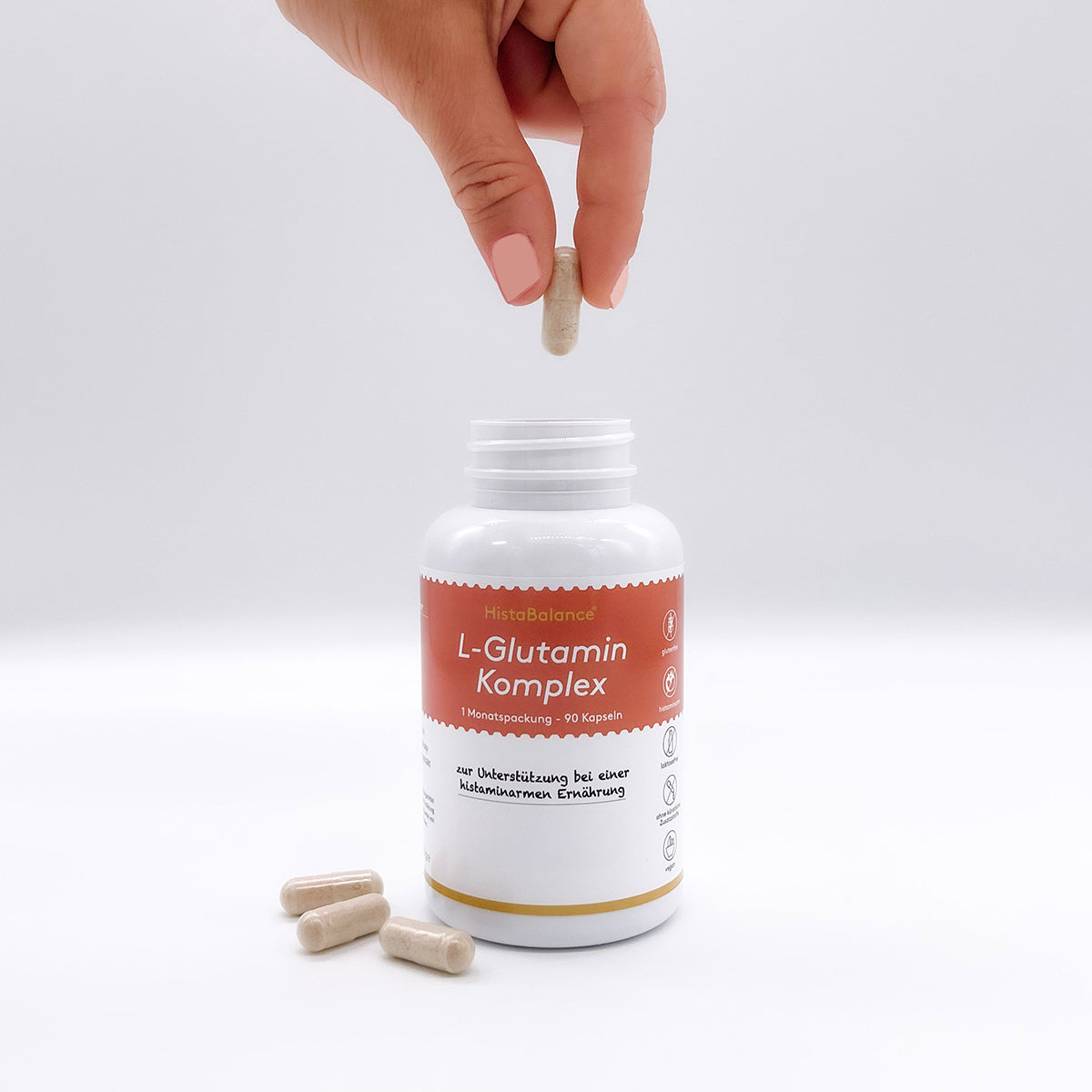
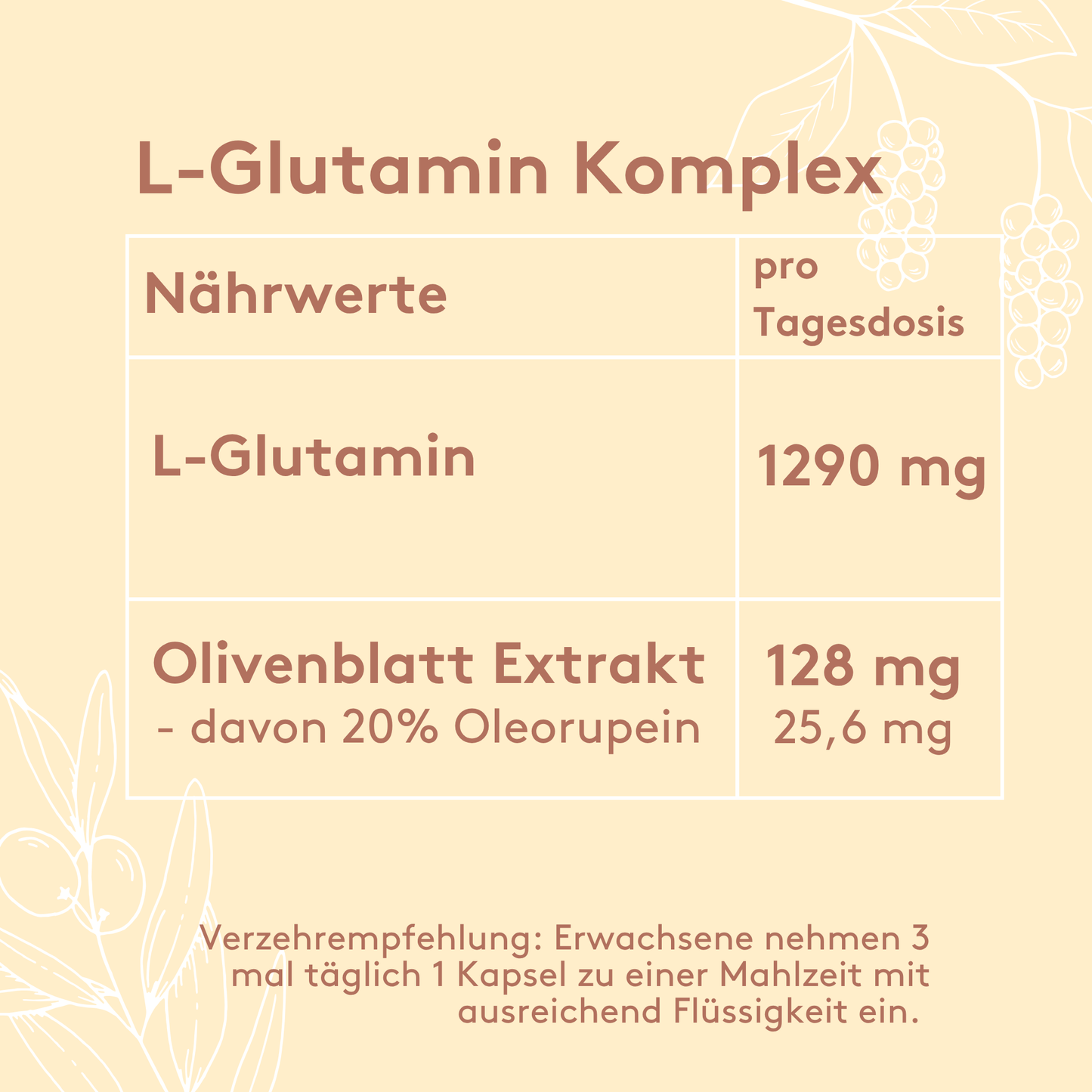
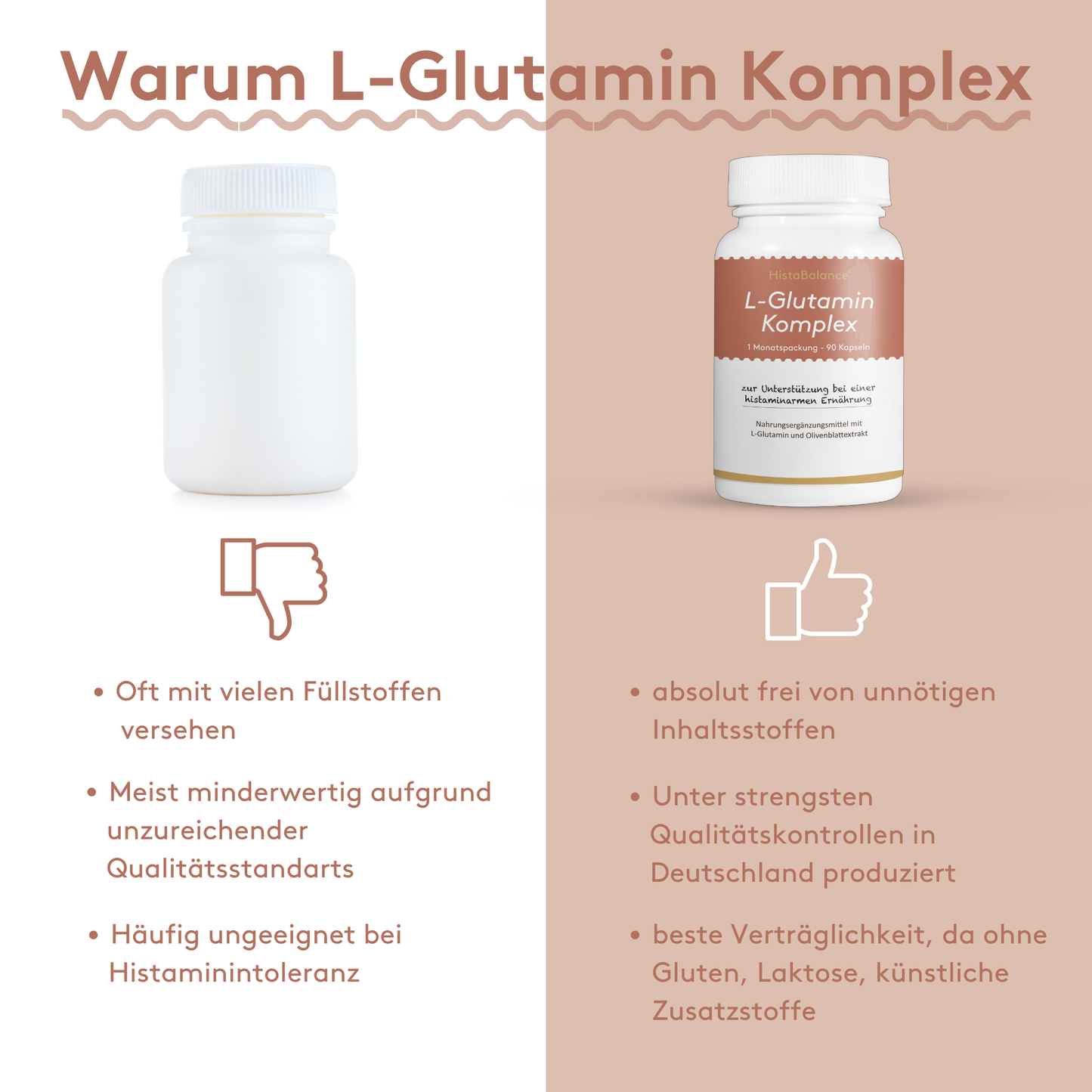
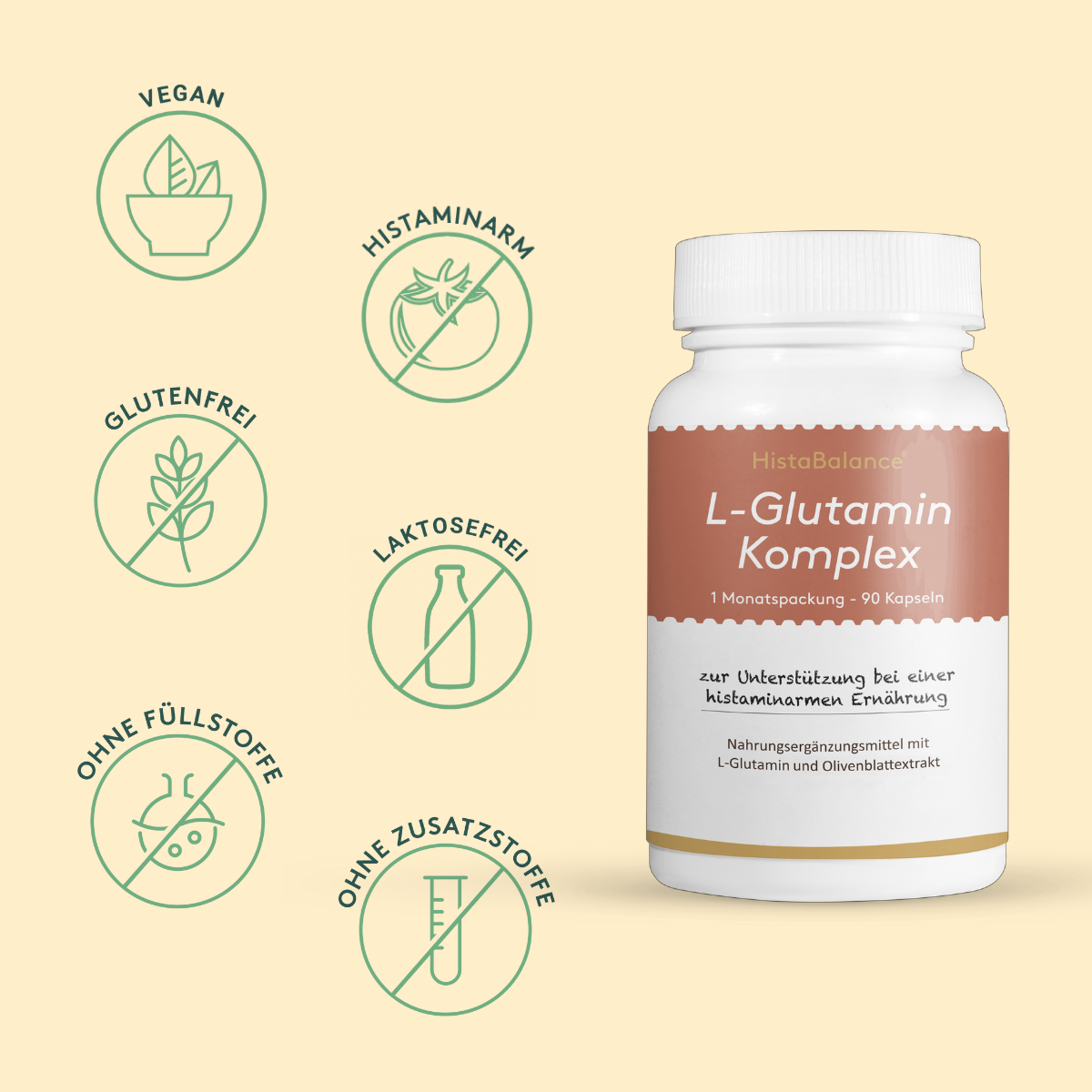
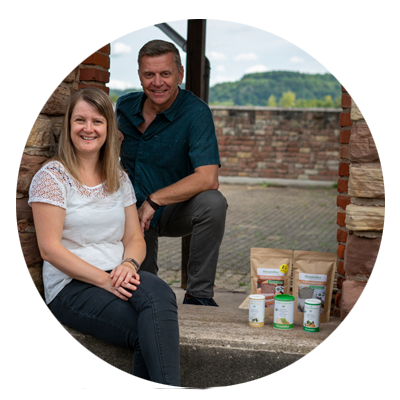
From those affected for those affected
We are Thomas and Michaela Zinser, founder of Histaminikus.
Because of the own histamine intolerance of Michaela and our son, we founded Histaminikus. The frustration does not find any suitable histamine food has spurred us to develop low -histamine food.
We would like to give you back a piece of quality of life. Feel free to look around with us.
Kind regards
Thomas and Michaela
